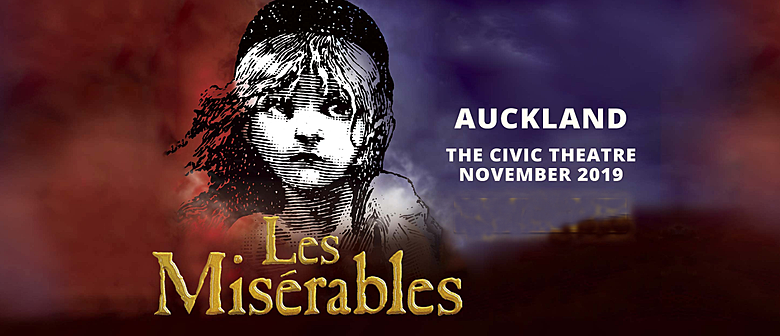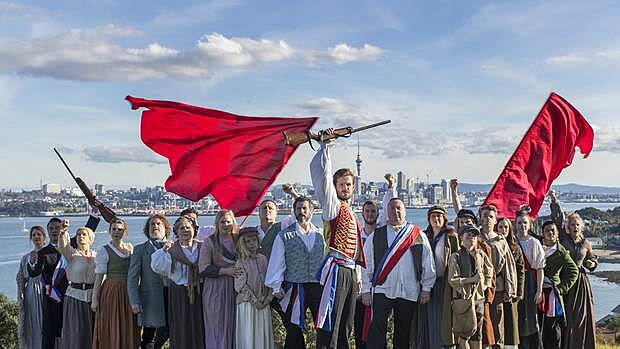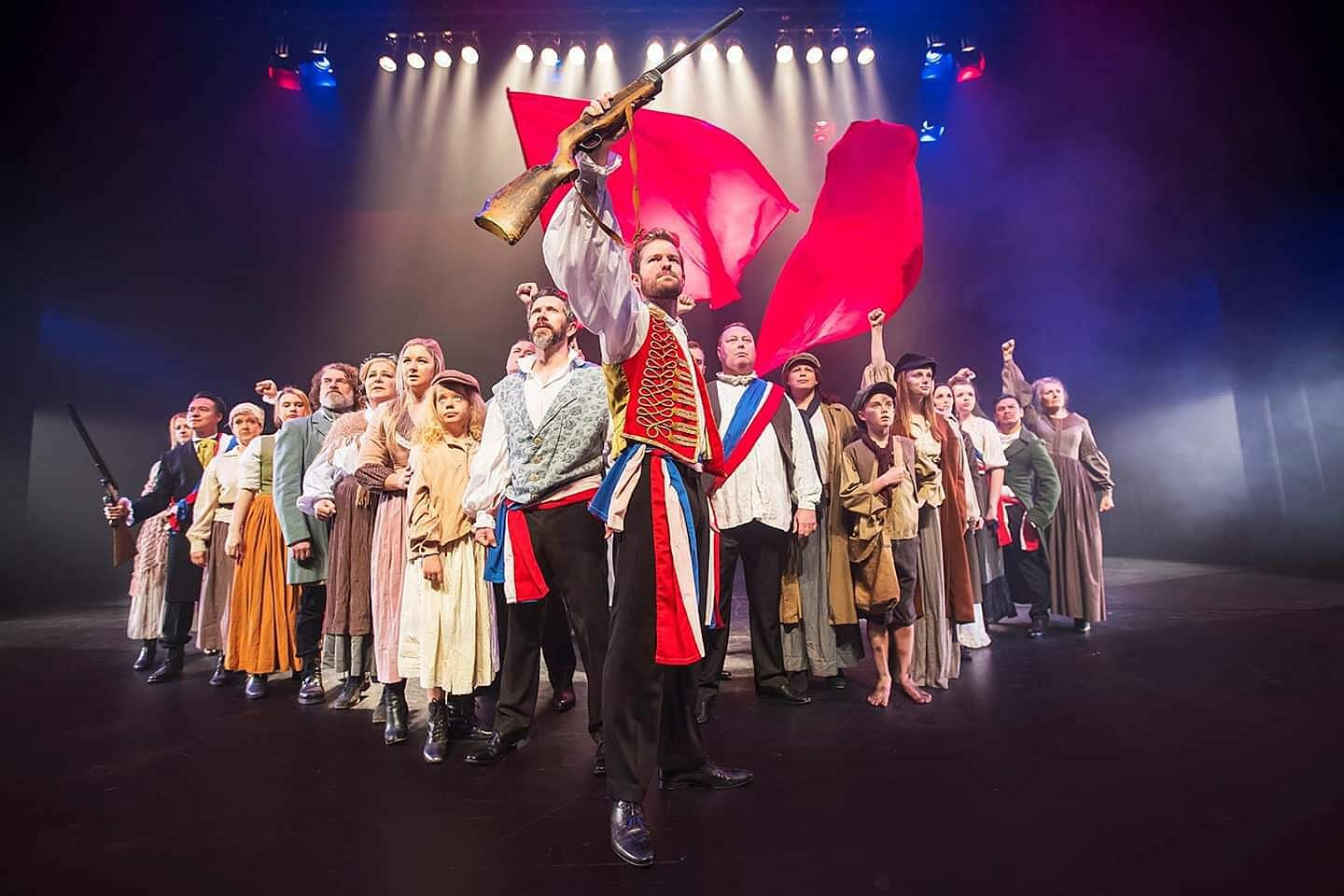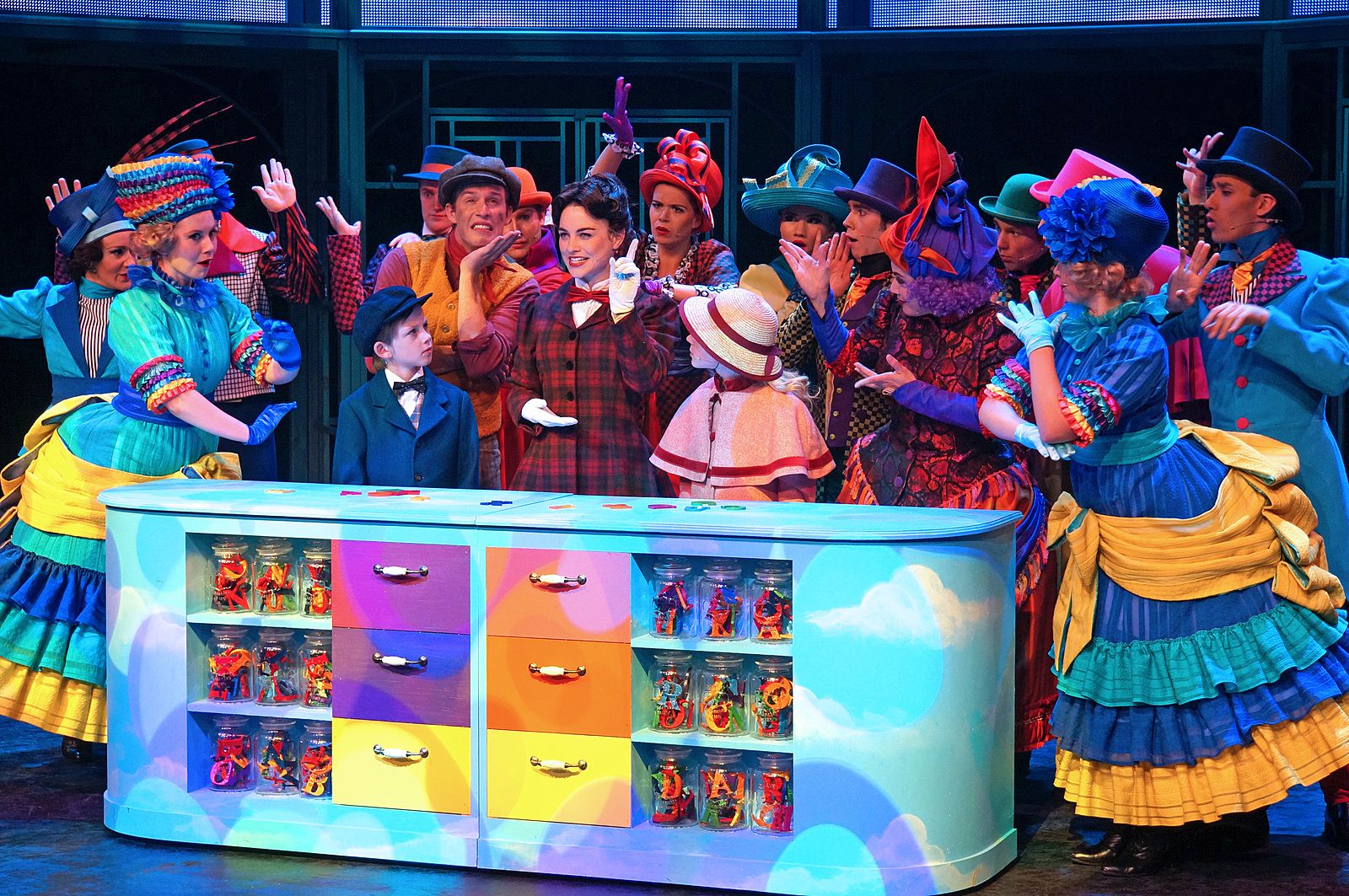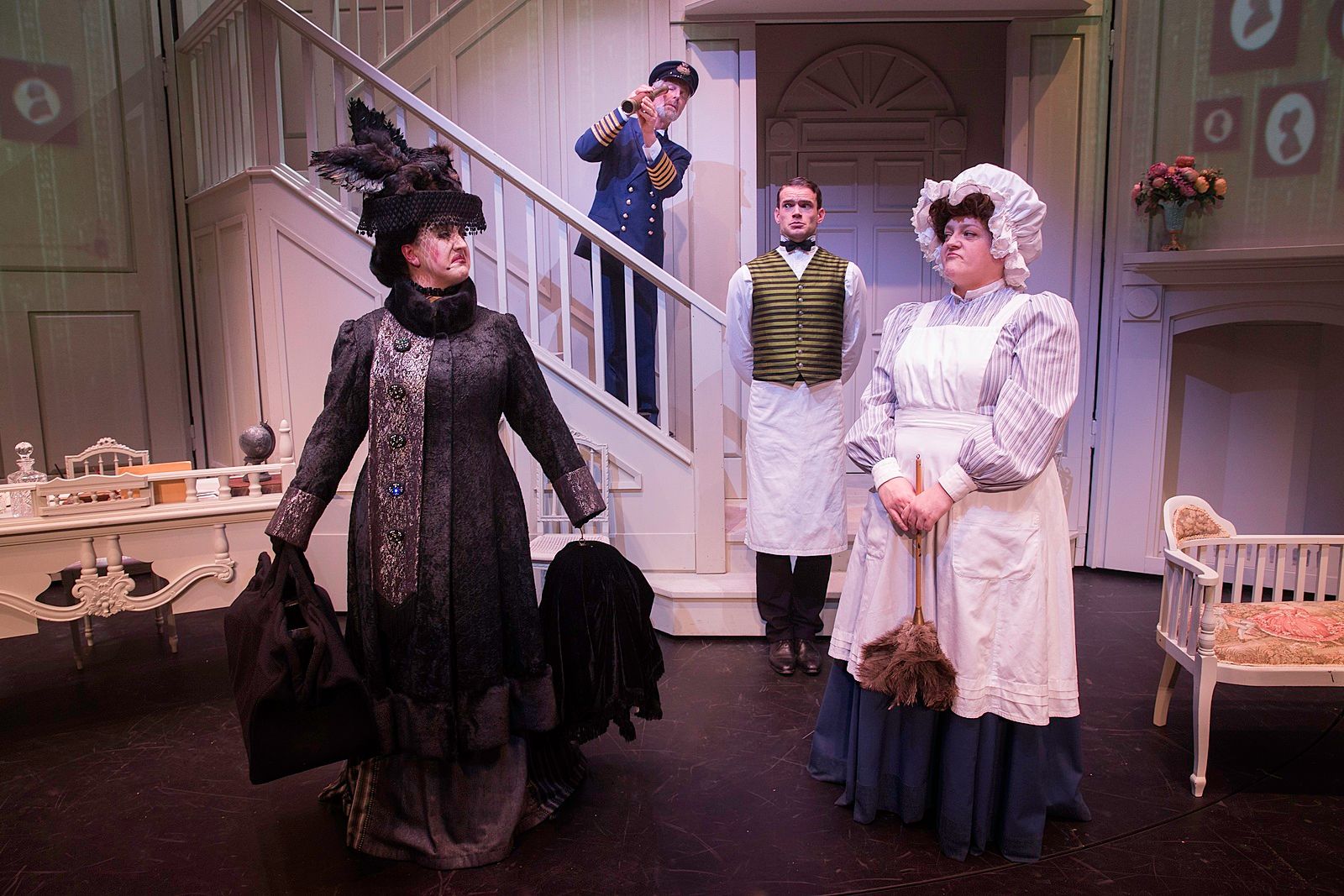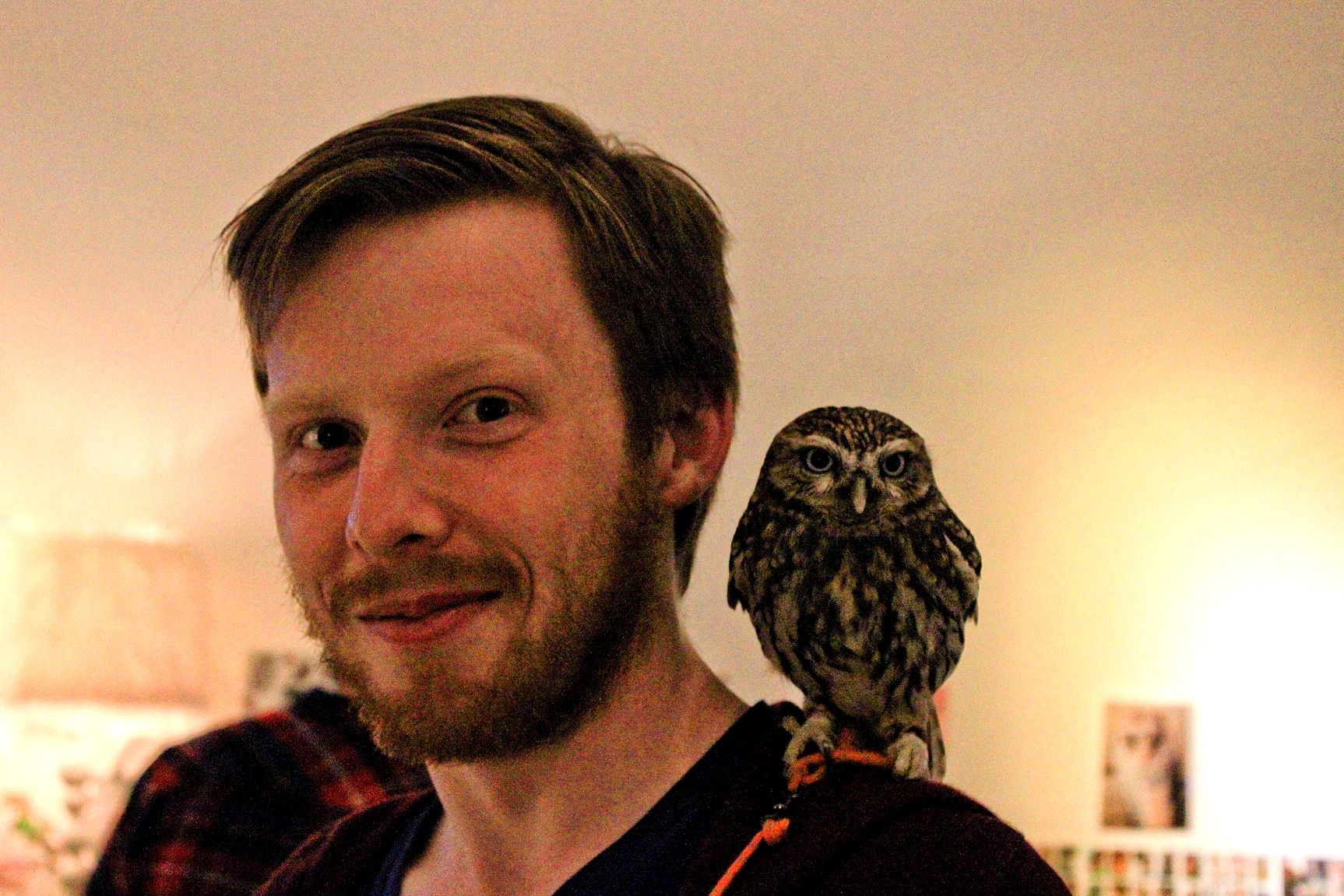On Stage, Not Getting Paid: Should We Be Paying People in Pro-Am Musicals?
In the wake of debates around Amici Productions' 2019 production of Les Misérables - a grand production in which some most of the cast will not be paid - Adam Goodall digs into the uneasy questions and difficult answers around the 70-plus years old tradition of pro-am musical theatre in New Zealand.
Tickets went on sale last week for Amici Productions' 2019 production of Les Misérables at the Civic Theatre in Auckland. But amidst all the hype and celebration, one conversation rose to the top - how many people know that most performers that'll be on stage in the grand production won't be paid for their time? Like, really know? And is it ethical that they won't get paid? Adam Goodall digs into the uneasy questions and difficult answers around 70 plus years old tradition of pro-am musical theatre in New Zealand.
The press release opens likes this: “With glorious new staging and dazzlingly reimagined scenery, this breathtaking production of Les Misérables will be staged at the beautiful Auckland theatre, The Civic, in November 2019.”
Les Misérables is a new co-production between Auckland Music Theatre, Amici Productions and the Amici Trust. It’s being staged to celebrate the 100th anniversary of Auckland Music Theatre. There’ll be that “glorious new staging,” as Auckland Music Theatre spokesperson Sandra Roberts tells it, and “modern technology and effects,” according to director Grant Meese.
Tickets went on sale on Friday. Adult tickets start at $42; the best seats in the house on a Saturday night will set you back a cool $110. That’s pretty par for the course for a professional musical in Auckland. A couple of blocks away at SkyCity Theatre, you can pick up tickets for City of 100 Lovers for $51 at their cheapest to $81 at their most expensive. Over in the Wynyard Quarter, adult tickets for Shortland Street – The Musical go for between $57 and $107 depending on the night and the seat. It’s even pretty cheap for the Civic: Aladdin, an internationally touring production that hits the stage in January, is selling tickets for anywhere between $60 and $195.
Unlike those productions, though, Amici’s Les Misérables isn’t a professional production. Amici’s Les Misérables is a pro-am production – the cast and crew are a mix of professional performers, designers and technicians, and enthusiastic amateurs. And those enthusiastic amateurs aren’t getting paid.
Pro-am musical theatre is what its name suggests. Like those sporting competitions with which it shares its name, pro-am musical theatre is typically cast, crewed and produced as a mix of professional and community personnel and philosophies. The production values are higher, the venues are bigger and some of the cast and crew are getting paid. The rest of the cast and crew, who are sourced from the community through auditions and open calls, are not.
Pro-am productions have been around in New Zealand for decades. Most of the ones we see today are produced by member societies of the non-profit Musical Theatre New Zealand, an umbrella company for community groups from Kerikeri Theatre Company up north to Invercargill Music Theatre Company in the bitterly cold south. Auckland’s Amici Productions is a little different. It’s a corporate member of MTNZ, nestled in MTNZ's list of members alongside tech rental providers.
Grant Meese and two others founded Amici Productions in 2002. Meese, who is the Operations and Artistic Director of Amici Productions and the director of Les Misérables, would do a lot of freelance directing work during those early days, and this work took Meese outside of Auckland a lot. It was during this time that Meese fell in love with community musical theatre societies. These regional societies routinely had use of their city’s biggest stages and stepped up the production values to meet those expectations, and Meese was encouraged by the response in the cast and crew. “I just saw what it was giving to the performers,” Meese says. “They were absolutely loving it.”
Auckland was missing a beat, though, he thought, by relegating its societies to small suburban stages while spaces like the Civic just sat there. Amici joined the pro-am game, starting in 2009 with CATS, co-produced with Harlequin Musical Theatre. Amici has produced a number of pro-am shows on Auckland’s major stages since then, most notably 2016’s Phantom of the Opera at the Civic and 2017’s Sister Act at the ASB Waterfront Theatre. They’ve also collaborated several times with Auckland Music Theatre, including on Evita in 2016, Anything Goes in 2011 and Mamma Mia twice, in 2014 and earlier this year.
“I just saw what it was giving to the performers. They were absolutely loving it.”
“We’ve always cast on an amateur basis, y’know, a community basis,” Meese says of their pro-am process. “Of course,” he adds, “if… the artistic team doesn’t get what they think they need for the production [from the community auditions], because they are going into the Civic, then they will look further afield.”
That’s where the pro comes into pro-am. Who gets paid what differs from production to production. Typically, though, senior crew, like the director and musical director, are paid. If the venue requires the production to have registered crew on staff, those crew members get paid. And the cast members you “look further afield” for, the performers with particular skills that can’t be found in the community – say, for example, a powerful tenor who can play The Phantom, or Jackie Clarke – they get paid, too. “Most productions that we’ve done at the Civic, we’ve had to look outside the community for that,” Meese says.
Two of Amici’s productions since 2011 have also involved the Amici Trust, a separate charitable entity established as a way to “encourage participation in all aspects of performing arts through its productions, workshops and network.” On top of these pro-am productions – each one “a vehicle,” the Amici Trust website says, “for aspiring performers, musicians and crew and to gain experience on the ‘big’ stage in the likes of the Civic and ASB Waterfront Theatres” – the Amici Trust runs Junior Theatre New Zealand, an initiative that holds festivals, workshops and training programmes to engage young New Zealanders in musical theatre and grow the role that musical theatre plays in drama education nationally.
“Ultimately,” Meese says of the young people that they’re targeting through Junior Theatre New Zealand, “they’re the audience of the future and future people who will go into schools or want to do community theatre.”
These are really good reasons to involve the community in productions and to make community productions of this size – Meese notes that Amici’s productions often involve a cast and crew of around 200 people, over 40 of whom are on stage.
So what’s the problem here? Pro-am musical theatre, we’re told, grows public awareness of and engagement with theatre, normalises theatre as a thing that young people can do and see and make into a career, and gives local audiences the chance to see a local musical at a large scale.
On top of that, getting involved in this kind of theatre gives non-professionals in the community the chance to have fun and be a star and make a fucking big show on a fucking big stage for a fucking big audience. These are really good reasons to involve the community in productions and to make community productions of this size – Meese notes that Amici’s productions often involve a cast and crew of around 200 people, over 40 of whom are on stage.
A number of New Zealand’s professional theatres agree that those reasons are good and have adopted variations on the pro-am model in their own programming. In the Manawatu, Centrepoint Theatre’s Open Stage initiative casts performers and hires designers from the community to help create a large-cast production: this year was Luke Di Somma and Gregory Cooper’s Kate Sheppard musical That Bloody Woman. Circa Theatre’s 2015 production of The Mystery of Edwin Drood filled out its ensemble with students from Whitireia’s Musical Theatre course. And Christchurch’s Court Theatre regularly casts National Academy of Singing and Dramatic Art (NASDA) students in their annual musical. The students perform in the production as part of their studies and get paid for the run of the production (they don’t get paid for the rehearsal period).
But back to that question: what’s the problem here? What’s so objectionable about all this?
If you’re a young performer in New Zealand and you want to build a career in musical theatre, pro-am productions are more often than not the only way for you to get on stage. Whether it’s Amici in Auckland, Showbiz in Christchurch or DKCM in Dunedin, pro-am is the dominant model. These companies make the biggest local work with the biggest local casts and crews. Sometimes, they’re the only game in town.
“If all the big shows are pro-am,” asks Manaia Glassey-Ohlson, a 2012 graduate of Whitireia’s Performing Arts programme, “then where can an actor make a living?”
Glassey-Ohlson left New Zealand in late 2013 to further his career in London; he’s currently preparing to make his West End debut in the 2018/19 cast of Hamilton. There’s a lot of job insecurity for performers of all stripes in New Zealand, he notes, and we don’t have the population to sustain the number of long-running shows we’d need to create that job security. But another part of the problem is the dominance of pro-am productions. “It is a wonderful opportunity for people to be involved in a large-scale show,” he says, “... but when the musical-theatre scene in the largest cities is are taken over by pro-am companies it makes it difficult to find professional work.”
Young actors aren’t necessarily shut out of pro-am shows, just to be clear. Take Nick Purdie as an example. Purdie graduated from Whitireia in 2012 and with that, he graduated to paid roles in productions like Invercargill Musical Theatre’s Mary Poppins and Showbiz Christchurch’s Sister Act. Purdie supports the place of the pro in a pro-am show – it “provides more opportunities for performers in the country and continues to produce high-quality theatre around the whole country,” he says.
“If all the big shows are pro-am, then where can an actor make a living?”
But, as Glassey-Ohlsen intimates, these opportunities are few and far between, and none of them run long enough to keep a career afloat. The end result is that a lot of young performers either give up or leave the country altogether. Purdie did the latter: he’s currently an event manager working in England. “In New Zealand you wait maybe six months for a professional opportunity to arise,” he says. “In the UK you can get three a week.”
There’s a third thing that young performers might do at this crossroads, something that isn’t talked about as much: try and get their foot in the door by joining the pro-am production anyway, unpaid. Luke Di Somma, composer of That Bloody Woman, brought it up in an interview with RNZ in September. "There is even a scenario in some parts of the country where fully trained actors are doing amateur shows for free to get in with the directors of professional shows,” he told RNZ. “I understand this when someone has recently graduated – experience and exposure are important early on – but I find it troubling when actors work for free several years into their career, especially in the event these shows make a profit."
Grant Meese tells me that he has been contacted in the past by professional performers who’ve wanted to “register interest” in a role in a pro-am show that he’s directing. “If I’m aware, or the artistic team or production team are aware, that they [the performer] come from a professional background,” he says, “then you have to have a discussion about that. So there’s an openness, that they are aware what we’re doing.”
But unpaid work is only really a sustainable model for your workers if those workers come from a certain financial background. Musical theatre professionals are expected to do a lot to maintain and develop their skills, says Vanessa Immink, an independent theatre producer and 2015 graduate of Whitireia. “The amount of training you have to continue to put in after you’ve finished your degree – to maintain your vocal standard, your general performance standard, your fitness as well – it’s all necessary, it’s part of your career, it’s not an option.”
All of these things cost money – vocal lessons, dance lessons, gym memberships. It follows that in an industry dominated by the pro-am model, an industry where it’s necessary to perform in shows unpaid in order to get noticed, it’s the young performers with money and resources behind them who can afford to keep performing unpaid, who can keep rolling the dice in the hope they’ll get noticed. As in any other industry that relies on unpaid internships, the wealthier ones are the ones who can afford to last the distance.
Here’s another reason why people are mad about this, and it’s tied into the first reason: these shows look professional.
Take Les Misérables. If you didn’t know much about Amici Productions and Auckland Music Theatre, if you were a fair-weather theatregoer not especially clued into the comings and goings of the Auckland musical-theatre community, you might find it difficult to tell how many of the people in Les Misérables will not get paid. The press release doesn’t mention it. The website doesn’t mention it. The media coverage doesn’t mention it. They mention Auckland Music Theatre and Amici Productions, but they mostly just focus on the show.
On top of that, the show’s at the Civic and the ticket prices are on par with local professional musicals staged nationwide. The Civic has over 2300 seats and Les Misérables has 24 shows. Can we really expect the majority of the production’s potential audience of around 55,000 people to just know how pro-am productions work behind the scenes?
“I think you have to be careful how you use the word professional in that regard,” says Meese. Les Misérables might present as professional but, he argues, it’s still quite clear from the marketing who’s behind the work. This is a pretty significant departure from the norm, he says, where producers are often obscured in the marketing. “It’s like, what productions do you know at the Civic... you don’t even know who the producers are half the time.”
“If you compare it to other professional productions that come through the Civic, our pricing is at least 20 to 30 percent cheaper than what people are paying for those productions.”
Beyond that, Meese says, pro-am companies have obligations to the rights-holders of the production they’re licensing. “With any company that puts a musical on or a play or anything that involves grand rights, you’d have to advertise, if you like, [as] the rights-holder expresses,” he says. “So we’re under strict guidelines on how to advertise a piece.”
“And I think, you know, in this case, all the press releases have stated that it’s the Amici Trust and Auckland Music Theatre producing it,” he adds, “as it will be in the posters. It will quite clearly say Auckland Music Theatre and the Amici Trust… So, from that point of view, I think you can overlabel things.”
You also have an obligation to look professional on stage when you’re dealing with a “recognised product” like Les Misérables, Meese says. You have an obligation to design a professional-looking set and professional-looking costumes, arrange professional sound and lighting design, include modern technology and effects. These things aren’t just a nice-to-have. “If you do go into a theatre like the Civic, people have expectations about how things should look and sound,” Meese explains, “so you have to have a budget that’s going to meet those expectations.”
“I think you have to be careful how you use the word professional in that regard. It’s like, what productions do you know at the Civic... you don’t even know who the producers are half the time.”
That’s particularly true for a Consortium production like this. The New Zealand Musical Theatre Consortium is a group of several regional societies operating completely separately and independently from Musical Theatre New Zealand. The Consortium regularly pools their resources together to negotiate amateur rights for the production and build the “physical product,” as Meese calls it. That physical product is built by the member societies who can contribute to the build, then it’s hired out to the rest so that those companies can share the financial load for these pretty expensive builds. “Each build may also be different dependent on requirements,” explains Meese. “There may be a physical product bought from overseas by the group and then refurbished to fit local requirements or it may be only one portion of a physical product required, such as building just set/costume or props.”
So while these ticket prices might seem high for a community production, Meese argues, they’re set at a rate that accounts for those expenses while also being as accessible as possible. “If you compare it to other professional productions that come through the Civic, our pricing is at least 20 to 30 percent cheaper than what people are paying for those productions.” The most expensive tickets for Les Misérables, for example, are 43 percent cheaper than the most expensive tickets for the international tour of Aladdin that lands at the Civic in January for a larger 46 showseason.
It’s difficult to do a broader analysis of how Les Misérables’ prices compare to the prices of other professional musical theatre around the country, due to differences in scope, venue and organisational structure, among other things. For example, the most expensive tickets for the Court Theatre’s annual musical are $76, over 30 percent cheaper than Les Misérables’ most expensive tickets. However, those musicals are not of a comparable size – there are typically between 20 and 30 people in the Court’s casts, and another 10-30 people working behind the scenes –and the Court is a professional organisation with plenty of operational staff. It’s difficult to do a one-to-one comparison when you have to account for these factors.
But this all dances around the central point of how producers who present their productions in a professional way and charge accordingly can justify not paying their cast and crew – or, at least, how they can justify obscuring that detail from their audiences. Jennifer Ward-Lealand, President of Actors’ Equity New Zealand, told RNZ in September that more transparency was needed on where the box office went in pro-am productions. “[These shows] are the lifeblood of many communities,” she said, “But what they [the audience] are seeing are [actors] not getting any remuneration. It’s about making people aware of what it is and that 98 percent of people are working for free.”
Griffin Jenkins is a freelance musical director based in Auckland who’s been working in community theatre as an actor and musical director for his “whole life.” He, like many who posted on a Facebook post on the issue by Auckland-based performer Ashton Brown in the acting group Auckland Actors Assemble, would go one further than Ward-Lealand. “It’s unethical that certain people get paid and the rest of the cast don't,” Jenkins says. “The ensemble and secondary characters often put in as much or more work than the leads. The theatre company, by not paying them, is basically saying they're not good enough and are undervalued.”
But what’s the solution to that? More labelling? “One of the things they can do is be more transparent about the structure of what pro-am actually means, and educating the audience,” Vanessa Immink says. “It’s just being more honest about what the structure of pro-am is, [but] not necessarily specifically going, you know, this person’s getting paid, this person’s not getting paid in the programme” – the kind of overlabelling that Meese talks about.
“A lot of it comes down to your marketing, your website, and just being transparent – we are a pro-am production, some people are getting paid but this is ultimately a community theatre show.”
“It’s unethical that certain people get paid and the rest of the cast don't."
“It’s just being proactive, because they’ve created this mini-industry within our larger industry,” Immink says. “It is a good stepping stone, but it’s about being transparent and proactive about educating audiences and up-and-coming performers about what the pro-am structure actually is compared to a professional structure, compared to a community structure.”
“Then probably,” Immink adds, “the next thing is, actually, just if you have a pro-am budget, you could potentially afford to make it a professional production as well.”
Immink points out that she’s very aware it’s not that simple. Venues are expensive, professional performance rights are expensive, paying everyone is expensive. That’s why we have a gap in the market, Meese says. “I’ve got to say, and it’s from personal experience, not all musicals make money,” he says. “They are big and when they lose money, they can lose a lot of money. It’s very high risk.”
Jenkins isn’t satisfied with this common response. He says that international success stories like Matilda and Wicked have shown that New Zealand has a captive musical theatre audience crying out for something new, and that the alternative to providing that new thing in a professional capacity is to continue demanding a professional-level commitment from community performers.
“I’ve got to say, and it’s from personal experience, not all musicals make money. They are big and when they lose money, they can lose a lot of money. It’s very high risk.”
“Everyone involved in these shows loves what they do – otherwise we wouldn't do it,” Jenkins says. “[But] I think if [the producers are] making a profit, and if [the producers] continue expecting such a commitment and level of excellence, they need to make it a pro show. If not, advertise it clearly as an amateur show and pay no one.”
Payment doesn’t even need to start as a standard professional rate or wage, Immink says. The performers involved in pro-am shows, even the ones just in it for the love of it, sink a lot of time and money into these shows. They’re rehearsing regularly, they’re performing five or six times a week, they’re marketing the show on their own time. They’re paying for petrol to get to rehearsals, paying for babysitters to look after their kids, sometimes even paying dues to their society so they can be on stage.
A profit-share, Immink says, would be a great place to start. If the show makes a profit, the otherwise-unpaid members of the cast and crew get a cut of that profit; if not, no skin off their nose. “It could turn into a co-op,” she says, “something that’s a bit more fair to everyone that’s put all this time and energy into it, rather than a very small number of people getting paid for it.”
“Everyone involved in these shows loves what they do – otherwise we wouldn't do it. [But] I think if [the producers are] making a profit, and if [the producers] continue expecting such a commitment and level of excellence, they need to make it a pro show. If not, advertise it clearly as an amateur show and pay no one.”
Meese, on the other hand, doesn’t agree that professionalising productions like Les Misérables is the best way forward for Amici. “We’ve looked at it several times,” he says, “but to be honest… we get great, great pleasure from seeing the community-theatre people grow doing this. I know there’s a balance to find, but I just get such passion from it, and if we inspire them to go on and be those leaders in the next ten years, because they’ve had that great experience… that is good news!”
Does that rule out a profit-share? “I think the thing to remember,” Meese says, “is it comes to… if there isn’t a profit, what happens then? Who takes that risk?”
I put it to Meese that ensemble and backstage workers who wouldn’t otherwise get paid aren’t actually taking a risk when there’s a profit-share. Rather, there’s a mutual understanding that they will only get paid if there’s a profit, so they aren’t making any decisions based on the assumption that they’ll get paid. “You are right,” he says, “but look, I think the important stuff for what we’re doing is that it goes back into the community, and the community theatre, and Junior Theatre New Zealand.
“You know, you can look at the Amici Trust accounts, and you’ll see that there’s probably some profit-share from the production there – that’s all been driven back into Junior Theatre New Zealand at some point.” Junior Theatre New Zealand ran their yearly Junior Theatre Celebration at the start of November, Meese points out, “with more than 600 kids attending. That is something to celebrate,” he says.
As for Auckland Music Theatre, they’ve got a rehearsal venue to maintain – Westpoint Performing Arts Centre – and a centennial to celebrate. “They’re publishing a book this year, Meese says, “and some of the funds that they’ve made from profit-share will probably go into that book, celebrating their last hundred years.
“You know, you’ve gotta have funds to celebrate this stuff… and there’s many shows that don’t make a profit. It comes in waves and balances, I’d call it.”
Musical Theatre New Zealand president Daniel Pepperell told RNZ in September that “money is not the end game” for unpaid performers and crew members in pro-am productions.
“It’s for love,” [Pepperell] says. “Fifty percent of it is about having the opportunity to be on stage. The other 50 percent is social.”
This is pretty emblematic of why this debate about whether you should pay everyone involved in a pro-am production, pros and ams alike, isn’t going to end any time soon. One side sees pro-am productions as community-building and talent development, a great way for enthusiasts to come together and make something they wouldn’t normally have the resources to make for an audience they wouldn’t normally have the resources to attract.
The other side sees pro-am productions as devaluing the work of young professionals at best and exploitation at worst. To them, it’s untenable for companies like Amici, Showbiz Christchurch and DKCM – not to mention the many member societies of the New Zealand Musical Theatre Consortium – to be putting on expensive, professional-sized shows without at least educating the public on the fact that most of the people on and off stage are doing this for free. It’s an ethical failure in a tiny industry that can barely afford it.
“It’s 2018,” Immink says. “Like, we’re having so many other changes throughout the industry, about, like, oh, you shouldn’t put on that show if you can’t cast it correctly or authentically. It still goes the same if you’re producing. If you can’t afford to do it, don’t do it.”
“But it is a model that’s been going on for many many years. This is not new.”
The musical-theatre industry in New Zealand, and globally, is in the middle of a pretty huge cultural overhaul right now, an overhaul spearheaded by a new generation of makers entering the industry and challenging the status quo around what’s produced, how it’s produced and how labour is conceptualised. Part of that overhaul has to include a frank discussion about, and reassessment of, what is considered ‘work’ in community-mademusicaltheatre, and whether what’s being requested of community performers has gone beyond simple recreation or volunteering.
Put it this way: it’s easy to write off hours and hours of rehearsal and performance, hours and hours of learning to use a venue’s complicated technology and operating it in the dark, hours and hours of building a show to a professional standard, if those hours and hours are framed as something people have spent ‘for the love of it,’ or as part of a ‘social’ thing. It’s a bit harder to do that when some people on the cast and crew are getting paid for those hours and hours and others aren’t. That’s when it starts to look like work.
At the end of our interview, I ask Grant Meese if he has anything he wants to add. “The only point I’d like to make,” he says after thinking on it for a few seconds, “is that every time we announce a production, we get either someone wanting to do a report on us or find out more about it, and that’s good, we get the information out, great. No problem with that.
“But it is a model that’s been going on for many many years. This is not new.”
He’s not wrong. This isn’t new. But whether it’s worth keeping around? That’s another question entirely.
Note: An earlier version of this article unintentionally omitted the role played by Ashton Brown, an Auckland-based writer and performer, in provoking a discussion on this issue in the community through a Facebook post in the Auckland acting group Auckland Actors Assemble. The article has been updated to reflect that.
